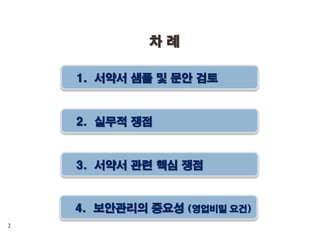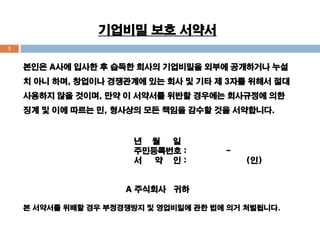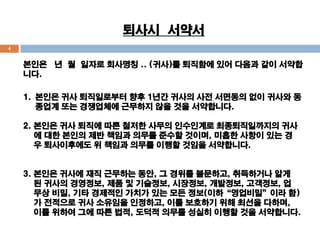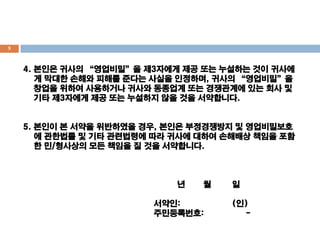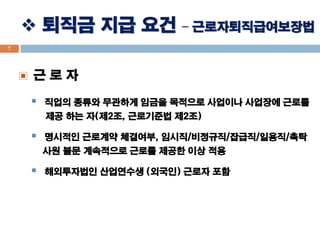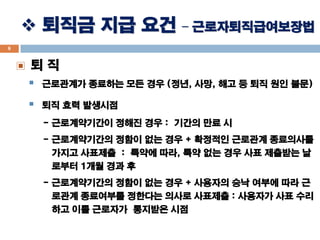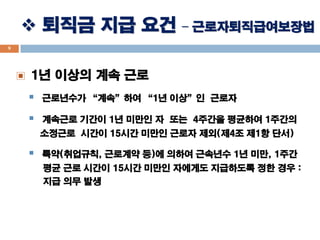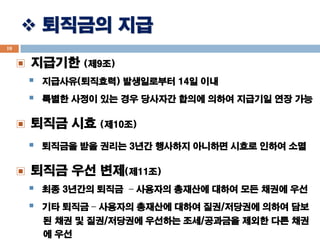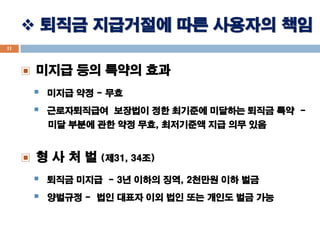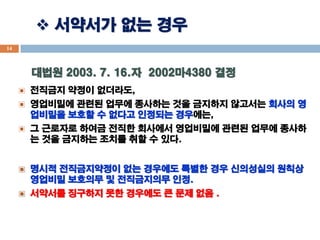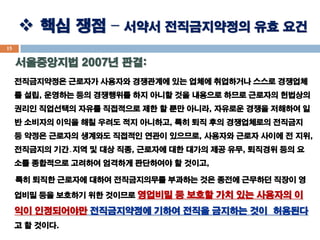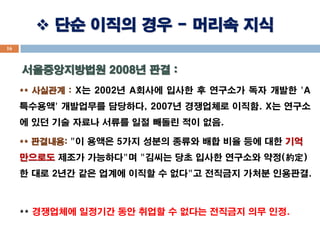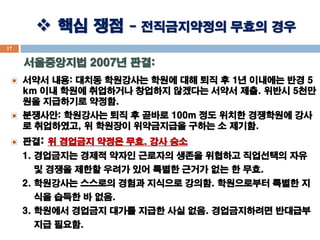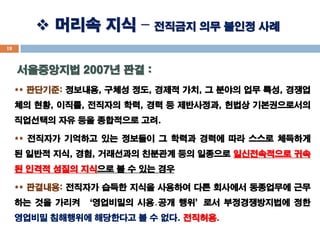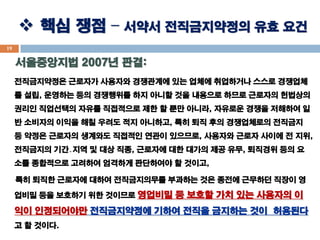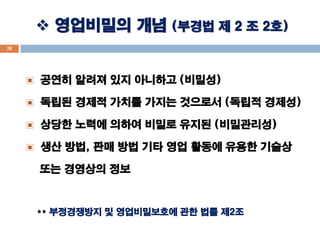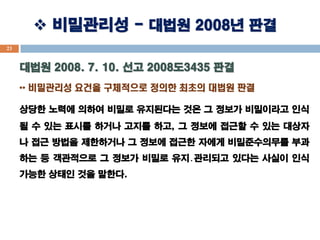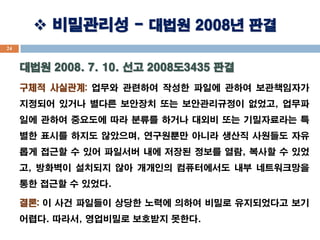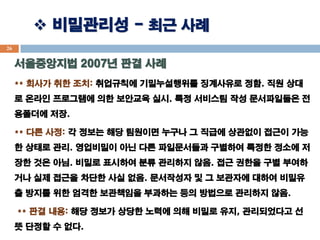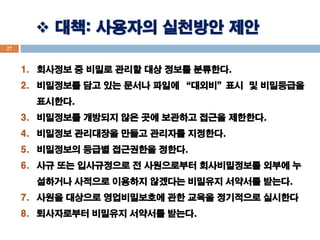?????? ??? ?? ??? ?? ? ??
- 1. ?????? ??? - ?? ?? ? ????? ??? - 1 2014. 1. 14. ???/??? ? ? ? kkh@kasanlaw.com
- 2. 2 1. ??? ?? ? ?? ?? 2. ??? ?? 3. ??? ?? ?? ?? 4. ????? ??? (???? ??) ? ?
- 3. ???? ?? ??? ??? A?? ??? ? ??? ??? ????? ??? ????? ??? ?? ??, ???? ????? ?? ?? ? ?? ? 3?? ??? ?? ???? ?? ???, ?? ? ???? ??? ???? ????? ?? ?? ? ?? ??? ?, ???? ?? ??? ??? ?? ?????. ? ? ? ?????? : - ? ? ? : (?) A ???? ?? ? ???? ??? ?? ?????? ? ????? ?? ?? ?? ?????. 3
- 4. ??? ??? ??? ? ? ??? ???? .. (??)? ???? ?? ??? ?? ?????. 1.??? ?? ?????? ?? 1?? ??? ?? ???? ?? ??? ???? ?? ????? ???? ?? ?? ?????. 2. ??? ?? ??? ?? ??? ??? ????? ???????? ?? ? ?? ??? ?? ??? ??? ??? ???, ??? ??? ?? ? ? ?????? ? ??? ??? ??? ??? ?????. 3. ??? ??? ?? ???? ??, ? ??? ????, ????? ?? ? ??? ????, ?? ? ????, ????, ????, ????, ? ?? ??, ?? ???? ??? ?? ?? ??(??¡°????¡±?? ?) ? ???? ?? ???? ????, ?? ???? ?? ??? ???, ?? ??? ?? ?? ??, ??? ??? ??? ??? ?? ?????. 4
- 5. 4. ??? ??? ¡°????¡±? ?3??? ?? ?? ???? ?? ??? ? ??? ??? ??? ??? ??? ????, ??? ¡°????¡±? ??? ??? ????? ??? ???? ?? ????? ?? ?? ? ?? ?3??? ?? ?? ???? ?? ?? ?????. 5. ??? ? ??? ????? ??, ??? ?????? ? ?????? ? ???? ? ?? ????? ?? ??? ??? ???? ??? ?? ? ?/???? ?? ??? ? ?? ?????. ? ? ? ???: (?) ??????: - 5
- 6. ? ????? ???? ??? ???? ???? ???? ???? ?? ?? ? ??? ??? ??? ? ???? ? ??? ???? ???? ?? ???? ???? ??? ??? ???? ? ?????? ???? ?? ?? ?? ? ?? ????? ? ??? ??? ?? ??? ???? ?? ???? ? ???? ???? ???? ??? ?? ? ??? ?? 6
- 7. ? ? ? ? ? ??? ??? ???? ??? ???? ???? ???? ??? ?? ?? ?(?2?, ????? ?2?) ? ???? ???? ????, ???/????/???/???/?? ?? ?? ????? ??? ??? ?? ?? ? ?????? ????? (???) ??? ?? ? ??? ?? ?? ¨C ?????????? 7
- 8. ? ? ? ? ????? ???? ?? ?? (??, ??, ?? ? ?? ?? ??) ? ?? ?? ???? - ??????? ??? ?? : ??? ?? ? - ??????? ??? ?? ?? + ???? ???? ????? ??? ???? : ??? ??, ?? ?? ?? ?? ???? ? ??? 1?? ?? ? - ??????? ??? ?? ?? + ???? ?? ??? ?? ? ??? ????? ???? ??? ???? : ???? ?? ?? ?? ?? ???? ???? ?? ? ??? ?? ?? ¨C ?????????? 8
- 9. ? 1? ??? ?? ?? ? ????? ¡°??¡±?? ¡°1? ??¡±? ??? ? ???? ??? 1? ??? ? ?? 4??? ???? 1??? ???? ??? 15?? ??? ??? ??(?4? ?1? ??) ? ??(????, ???? ?)? ??? ???? 1? ??, 1?? ?? ?? ??? 15?? ??? ???? ????? ?? ?? : ?? ?? ?? ? ??? ?? ?? ¨C ?????????? 9
- 10. ? ???? (?9?) ? ????(????) ?????? 14? ?? ? ??? ??? ?? ?? ???? ??? ??? ???? ?? ?? ? ??? ?? (?10?) ? ???? ?? ??? 3?? ???? ???? ??? ??? ?? ? ??? ?? ??(?11?) ? ?? 3??? ??? ¨C ???? ???? ??? ?? ??? ?? ? ?? ??? ¨C ???? ???? ??? ??/???? ??? ?? ? ?? ? ??/???? ???? ??/???? ??? ?? ?? ? ?? ? ???? ?? 10
- 11. ? ??? ?? ??? ?? ? ??? ?? - ?? ? ??????? ???? ?? ???? ???? ??? ?? - ?? ??? ?? ?? ??, ????? ?? ?? ?? ? ? ? ? ? (?31, 34?) ? ??? ??? - 3? ??? ??, 2??? ?? ?? ? ???? - ?? ??? ?? ?? ?? ??? ?? ?? ? ??? ????? ?? ???? ?? 11
- 12. ? ?? - ??? ???? ? 12 ????? ????? ???? ??? ???? ??? ??? ?? ???? ???? ???? ?. ??????? ??? ???? ???? ?? ? ??? ??? ???? ??? ??? ???. ????? ?? ?? ??? ?????? ???? ???? ?? ?? ???? ????, ???? ? ? ? ??? ??
- 13. ? ??? ?? ?? ?? 13 ? ???? ?? ?? ?? ? ??? ??? ?? ? ??????? ?/?? ??? ?? ? ???/??? ?? ?? ??
- 14. ? ???? ?? ?? 14 ??? 2003. 7. 16.? 2002?4380 ?? ????? ??? ????, ?????? ??? ??? ???? ?? ???? ???? ??? ????? ??? ? ??? ???? ????, ?? ???? ??? ??? ???? ????? ??? ??? ???? ?? ???? ??? ?? ? ??. ???? ??????? ?? ???? ??? ?? ????? ??? ???? ???? ? ?????? ??. ????? ???? ?? ???? ? ?? ?? .
- 15. ? ?? ?? ¨C ??? ??????? ?? ?? 15 ?????? 2007? ??: ??????? ???? ???? ????? ?? ??? ????? ??? ????? ??, ???? ?? ????? ?? ??? ?? ???? ??? ???? ???? ??? ????? ??? ????? ?? ? ?? ???, ???? ??? ???? ?? ???? ??? ?? ??? ?? ????, ?? ?? ?? ?????? ???? ? ??? ???? ???? ???? ??? ????, ???? ??? ??? ? ??, ????? ????? ? ?? ??, ???? ?? ??? ?? ??, ???? ?? ??? ????? ???? ???? ????? ? ???, ?? ??? ???? ??? ??????? ???? ?? ??? ???? ??? ???? ?? ???? ?? ???? ???? ? ??? ?? ?? ???? ??? ?????? ??????? ??? ??? ???? ?? ????? ? ???.
- 16. ? ?? ??? ?? - ??? ?? 16 ???????? 2008? ?? : ** ???? : X? 2002? A??? ??? ? ???? ?? ??? 'A????' ????? ????, 2007? ????? ???. X? ???? ?? ?? ??? ??? ?? ??? ?? ??. ** ????: "? ??? 5?? ??? ??? ?? ?? ?? ?? ?????? ??? ????"? "??? ?? ??? ???? ??(¼s¶¨) ? ?? 2?? ?? ??? ??? ? ??"? ???? ??? ????. ** ????? ???? ?? ??? ? ??? ???? ?? ??.
- 17. ? ?? ?? - ??????? ??? ?? 17 ?????? 2007? ??: ???? ??: ??? ????? ??? ?? ?? ? 1? ???? ?? 5 km ?? ??? ????? ???? ???? ??? ??. ??? 5???? ????? ???. ?????: ????? ?? ? ??? 100m ?? ??? ????? ??? ?????, ? ???? ?????? ??? ? ???. ???: ? ???? ??? ??. ?? ?? 1. ????? ??? ??? ???? ??? ???? ????? ?? ? ??? ??? ??? ?? ??? ??? ?? ? ??. 2. ????? ???? ??? ???? ???. ?????? ??? ? ?? ??? ? ??. 3. ???? ???? ??? ??? ?? ??. ??????? ???? ?? ???.
- 18. ? ??? ?? ¨C ???? ?? ??? ?? 18 ?????? 2007? ?? : ** ????: ????, ??? ??, ??? ??, ? ??? ?? ??, ????? ??, ???, ???? ??, ?? ? ?????, ??? ??????? ????? ?? ?? ????? ??. ** ???? ???? ?? ???? ? ??? ??? ?? ??? ???? ? ??? ??, ??, ????? ???? ?? ???? ??????? ??? ??? ??? ???? ? ? ?? ?? ** ????: ???? ??? ??? ???? ?? ???? ????? ???? ?? ??? ¡®????? ????? ??¡¯?? ???????? ?? ???? ????? ????? ? ? ??. ????.
- 19. ? ?? ?? ¨C ??? ??????? ?? ?? 19 ?????? 2007? ??: ??????? ???? ???? ????? ?? ??? ????? ??? ????? ??, ???? ?? ????? ?? ??? ?? ???? ??? ???? ???? ??? ????? ??? ????? ?? ? ?? ???, ???? ??? ???? ?? ???? ??? ?? ??? ?? ????, ?? ?? ?? ?????? ???? ? ??? ???? ???? ???? ??? ????, ???? ??? ??? ? ??, ????? ????? ? ?? ??, ???? ?? ??? ?? ??, ???? ?? ??? ????? ???? ???? ????? ? ???, ?? ??? ???? ??? ??????? ???? ?? ??? ???? ??? ???? ?? ???? ?? ???? ???? ? ??? ?? ?? ???? ??? ?????? ??????? ??? ??? ???? ?? ????? ? ???.
- 20. ? ????? ?? (??? ? 2 ? 2?) 20 ? ??? ??? ?? ???? (???) ? ??? ??? ??? ??? ???? (??? ???) ? ??? ??? ??? ??? ??? (?????) ? ?? ??, ?? ?? ?? ?? ??? ??? ??? ?? ???? ?? ** ?????? ? ??????? ?? ?? ?2?
- 21. ? ????? ? ? ?? ?? 21 ???? ?? ????? ???? ???, ??? ??? ?? ?? ??? ??: ????? ??? ???? ????: ? ?? ??? ??? ??: ???????? 2008? ?? ?????? -¡°VIP ?? ??? ?? ??¡± ?? ?? ???? ?? ?? ??- ?? 6?, ???? 1? ??
- 22. ? ????? ??? ???? - ???? ? ?? ?? ???? ?? ???? ?? ????? ??? ???? ???? ? ??? ??? ???? ????? ??? ??? ??? ????? ??? ?? ???. ? ??? ???? ????? ??? ??? ??? ??? ? ?? ??? ??? ??? ??? ??, ????? ? ??? ?? ?? ??? ?? ???? ?. ? ????-????? ??? 22
- 23. ? ????? - ??? 2008? ?? 23 ??? 2008. 7. 10. ?? 2008?3435 ?? ** ????? ??? ????? ??? ??? ??? ?? ??? ??? ??? ??? ????? ?? ? ??? ????? ??? ? ?? ??? ??? ??? ??, ? ??? ??? ? ?? ???? ?? ??? ????? ? ??? ??? ??? ??????? ???? ? ????? ? ??? ??? ??????? ??? ??? ?? ??? ??? ?? ???.
- 24. ? ????? - ??? 2008? ?? 24 ??? 2008. 7. 10. ?? 2008?3435 ?? ??? ????: ??? ???? ??? ??? ??? ?????? ???? ??? ??? ???? ?? ??????? ???, ????? ??? ???? ?? ??? ??? ??? ?? ?????? ??? ??? ??? ????, ????? ??? ??? ???? ???? ??? ? ?? ???? ?? ??? ??? ??, ??? ? ???, ???? ???? ?? ???? ?????? ?? ?????? ?? ??? ? ???. ??: ? ?? ???? ??? ??? ??? ??? ?????? ?? ???. ???, ????? ???? ???.
- 25. ? ????? - ?? ?? 25 ??? VIP ???? ?? ??? - ?????? 2008? ?? * ??? ??: ??, ????? ?? ????? VIP ????? ????? ?? * ??? ????: ?? ???? ????? ??? ?????? ????? ??? ???? ? ? ?? ???? ?? ?? ?? ?? ??? ? ? ??? ? ?? ??? ?? ????? ????? ???? ???. * 1? ??: "?? ??? ??? "??" "???"? ??? ?? ????? ??? ??? ??? ?? ??? ??? ?? ??? ?? ??"? ??? ???? ?? 6?, ???? 1?? ?? ??? ??. ???, ????? ????? ??? ?? ?? ??? ??? ??? ??? ??? ? ???? ??? ???? ??. ????? ??? ??.
- 26. ? ????? - ?? ?? 26 ?????? 2007? ?? ?? ** ??? ?? ??: ????? ??????? ????? ??. ?? ?? ? ??? ????? ?? ???? ??. ?? ???? ?? ?????? ????? ??. ** ?? ??: ? ??? ?? ???? ??? ? ??? ???? ??? ??? ??? ??. ????? ?? ?? ?????? ???? ??? ??? ??? ?? ??. ??? ???? ?? ???? ??. ?? ??? ?? ????? ?? ??? ??? ?? ??. ????? ? ? ???? ??? ???? ??? ?? ??? ????? ???? ?? ???? ???? ??. ** ?? ??: ?? ??? ??? ??? ?? ??? ??, ?????? ?? ??? ? ??.
- 27. 1.???? ? ??? ??? ?? ??? ????. 2.????? ?? ?? ??? ??? ¡°???¡±?? ? ????? ????. 3.????? ???? ?? ?? ???? ??? ????. 4.???? ????? ??? ???? ????. 5.????? ??? ????? ???. 6.?? ?? ?????? ? ?????? ??????? ??? ????? ???? ???? ???? ???? ???? ???. 7.??? ???? ??????? ?? ??? ????? ???? 8.?????? ???? ???? ???. ? ??: ???? ???? ?? 27
- 28. ????? ??????? ??? ?? ???? ????? ??? ???? ???? ???? ???????? ? ?????? ?? ???? ??, ?? ????? ??? ???. ?? ? ? ? 28
- 29. 29


